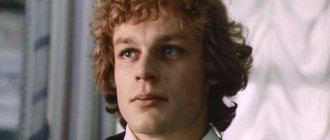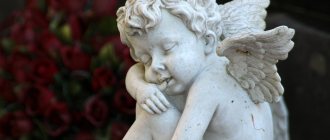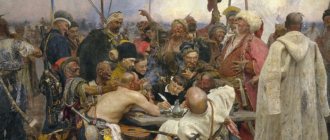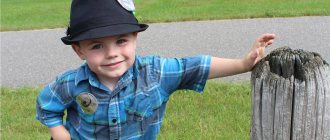The guardian angel of the Leo sign looks after people born between July 23 and August 22. Each person is destined for his own angel, who will protect him throughout his life and help him when he finds himself in difficult situations. Angels give a person energy and also rejoice at our successes. They do not leave a person even after death, accompanying our soul.
The name of the Guardian Angel of Leo is Raziel. It helps to develop on a spiritual level, teaches you to appreciate what a person has, and also helps when making difficult choices. However, Raziel's disposition matches that of the Lions, and therefore he will help a person only after he asks him to do so.
If a person cannot solve any problem, the Angel will always come to the rescue and show the right path. It is your Guardian Angel who makes leaders out of you and helps you stand out from the crowd. He gives his students strength, self-confidence, and makes them charismatic. He loves to give pleasant surprises to Leos, but he is not the only one who helps you.
If your zodiac sign is Leo, you can, if necessary, turn to the Angel of Freedom for help; he protects Leo, but he will definitely come to the aid of others if necessary. Don’t forget to thank your guardian angel, and also remember that thoughts are material, which is why you should be careful with them. Don’t think about what you don’t want, since the Angel tends to fulfill people’s desires. In this article we will look at the personality of the Leo sign and its connection with its Angel.
Origin of the name Leo
The name Leo has an interesting origin and is one of the most ancient male names.
There are two versions of the origin of the name. First, the name Leo has Latin roots, in the original it sounds like Leo. The second option is that the name comes from the Greek Leon. In both cases, the name means “lion”, “king of beasts”. In ancient times, such names were given to children from noble families in order to invest in babies some kind of superpower contained in such a “royal”, majestic name.
The name came to Rus' from Byzantium, the Orthodox center of the Middle Ages, shortly after the adoption of Christianity. The rulers of Byzantium often had the name "Lion". Levey, Lev - these were the variations of the name in the Russian lands. The Orthodox name Leo was rarely given and gained popularity in Russia in the late 18th and early 19th centuries. One of the most famous Russian owners of the name is the writer Leo Tolstoy.
In addition, the name Leo from the Roman Empire and Byzantium spread to Western Europe, retaining the Latin form Leo. Babies in England, France, and Italy are still called this way. Over time, the name Leonardo, derived from the Latin Leo, became popular.
Body icon with chain “Matrona of Moscow” - a spiritual and beautiful gift for loved ones - buy for 1,490 rubles
History of the Zodiac sign Leo
Like any other sign of the Zodiac circle, Leo has its own history. The constellation Leo is one of the first to be discovered by ancient astronomers. It is believed to have been observed as early as 3500 BC. In Ancient Babylon this constellation was called UR GU LA, which translated means “Great Lion”. Since then, this constellation has been known in all major cultures of the world.
But this is not the only interesting thing about the constellation Leo. Its history is closely connected with the history of the exploits of the great Hercules. When the hero of the ancient Greek myth completed his studies, he faced his first serious test. What could be more serious than the Nemean Lion? This monstrous beast terrorized the entire area and was considered invulnerable due to its incredibly durable skin.
The Story of the Nemean Lion and Hercules
When Hercules first fought with Leo, he used all his weapons, which he mastered to perfection. He fired arrow after arrow, used a sword and a dagger, but nothing could damage the skin of the beast. Afterwards, Leo ran away into a cave and Hercules spent 2 months searching for his lair. Eventually the battle took place and Hercules defeated the beast with his own hands.
This story is full of secret meaning and shows the similarities between the Nemean Leo and the Zodiac sign Leo. This connection should be understood more deeply, as well as the connection with the Guardian Angel of the Leo zodiac sign.
Meaning of the name Leo
The meaning that the name Leo has acquired over the centuries is curious. Initially, this name was considered regal and was given only to babies from aristocratic, wealthy families, including future emperors and statesmen.
The name Leo suggests that its owner is courageous and decisive. A man with the same name, like the king of beasts, is noble and courageous, knows how to stand up for himself and his loved ones, and maintain honor and dignity in any situation. Leo never forgets about his responsibilities and promises, he is honest and straightforward.
Leo is quick-tempered, but easy-going. He tries to achieve success in all matters, does not admit defeat and always strives for success. Men with this name achieve significant success in their personal lives, careers, and sports. They contain qualities that determine primacy in all areas - intelligence, willpower, strength of character. Sometimes Leos lack prudence, but everything pays off with their ability to emerge victorious from difficult situations.
All of the above means some responsibility for the parents who chose the name Leo for the boy. It is necessary to raise a child to be brave, open, and purposeful in order for the royal name to be justified. Often the name Leo sounds ironic if its owner is cowardly and petty. It must be remembered that a name cannot reward a person with a set of moral qualities; it can only push them to develop them.
Characteristics of the birthday boy Leo:
King of beasts, mighty, brave. The word “lion” is Russian, but the very name of this animal through the German “leve”, the Latin “leo” goes back to the ancient Egyptian “lyab” - lion.
Leos are patient, flexible and correct. They know how to curb themselves in time and, if necessary, abandon their plans. However, everything is not unlimited - Leo also knows how to get angry. The main thing is to catch the moment when the lion is about to explode. Then it’s not too late for his subordinates or family members to stop him - to caress him, caress him. After all, Leo by nature (both beast and man) is very calm.
He loves silence and delicious food. Leo rarely drinks strong drinks. He needs a good family, a nice wife and many, many children... In principle, this is how his life turns out. But Leo’s wives are often too active and noisy. Maybe this is for the best, otherwise Leo will become completely fat.
Angel Day for those baptized with the name Leo
Leo's name day is celebrated 15 times a year. Each date is associated with the name of a specific saint. The most common day for celebrating the day of the Angel of Leo is July 14, when the Monk Leo, one of the most revered saints, is venerated. He is also honored on July 24th.
Believers traditionally remember Archimandrite Leo on January 12. The holy martyr Leo of Patara also bears the name Leo; he is celebrated on March 3. The name day on October 24 is associated with the figure of St. Leo of Optina. Less popular, but noteworthy days of the Angel for those baptized with the name Leo are February 2 (Tsar Leo the Great Makellus), May 31, August 31 and September 24 (martyr Leo), June 20 (priest Lev Ershov), September 20 (Archimandrite Lev Egorov ), and the last name day of the year is December 20.
Optina Pustyn
complete life letters photographs
Birth: 1768
Worldly name days: February 20/March 5
He was tonsured into the mantle: 1801.
Name Day: February 20/March 5
Priestly consecration: December 24/January 6, 1801
He was tonsured into the schema: 1808–1809.
Death (memorial day): October 11/24, 1841
Discovery of relics: June 27/July 10, 1998
The holy relics of St. Leo are in the Vladimir Church
Questions from a student and answers from an elder
The poet said: “You can’t see a face face to face; the big one is seen from a distance.” Only after many years can we fully appreciate a person’s personality, realize his holiness, his gifts. The first Optina elder Leo...
Young, healthy, successful, Lev Danilovich Nagolkin was successfully engaged in trade for more than ten years, moved in all layers of society, and studied their manners and life well. At the beginning of his journey, the Lord gave him enrichment with life experience, which later came in handy during his aging years. What made a successful merchant give up his career, wealth, and the joys of a possible family life? Doom yourself to a life of hardship and labor?
“The Kingdom of Heaven is like a merchant looking for good pearls. Who, having found one pearl of great price, went and sold all that he had and bought it.” So Father Leo found his pearl of great price. He went to God and became what we know him as - the first Optina elder.
It's always hard for the first one. It’s hard to make a winter path among the snowdrifts, shielding those who follow you from the piercing wind with your back. It’s hard for the first to walk through a swamp, a wrong step is a quagmire, and behind you are those whom you love and for whom you are responsible. It is difficult to be the first to follow the road of spiritual life; the price of a mistake can be the human soul. The one that is more valuable than anything in the world. What an unbearably heavy burden it is to be the first! And Father Leo carried this burden.
After the bright era of St. Sergius of Radonezh, the traditions of eldership were interrupted; under Peter I and after his reign, monasticism was persecuted. And during the years of Father Leo’s life, external feats - fasting, labors, bows, and sometimes chains - were considered sufficient for salvation.
Continuous prayer, purification of the heart, revelation of thoughts - everything that Father Lev learned from his mentor, Father Theodore, a disciple of the great elder Paisius Velichkovsky, was incomprehensible to many monastics. Without unceasing prayer, the heart is not purified; without revelation of thoughts, the ascetic does not grow. The elders argued that the enemy instills thoughts, imposes temptations, the level of which is always slightly higher than the strength of the ascetic. Therefore, by opening his thoughts to the elder, the ascetic receives help. And the demonic pressure weakens.
We are given commandments, but in life they can be fulfilled in different circumstances in different ways. And it is not always easy to understand what is happening - whether it is a temptation, or what the Lord wants from you. And elder leadership is necessary for spiritual growth. After all, spiritual life does not mean only being in the clouds. It consists in revealing the laws of spiritual life, as far as they apply to a given person in his situation, in his conditions...
The enemy hates spiritual leadership, eldership, which weakens his machinations. Just as mental-hearted unceasing prayer is hated, without which one cannot acquire the gifts of spiritual reasoning and eldership. That is why the enemy takes up arms against the elders.
The teacher of the Monk Leo, schemamonk Theodore, was haunted all his life by terrible slander and envy. The same fate befell Leo's father. For many years they had to lead a wandering life, move from one monastery to another, suffering from human malice, aroused by the enemy of our salvation. He drank to the dregs of the sorrow of misunderstanding, slander, and condemnation. Moreover, not from strangers, but from our own - our monastic brethren.
Father Lev began his monastic life in Optina Pustyn in 1797. Here he remained a novice for two years. Optina became both the place where his senile gifts flourished and the place of his last refuge. He also had to labor in other monasteries, and this was a monastic school.
The Holy Fathers say that “the feat of prayer in the midst of the vanity of the world, when immersed in business, is possible, as a rule, only within the active period. But we must assume that for a person who has been honored to go through the active path of achievement and achieve purity of heart, God’s Providence will also have a further path prepared for him. The Lord, to whom everything is possible, is able to arrange any external circumstances for his chosen ones. There is no doubt that at the right time He will bring such a person to the right place and place him in the right conditions.”
So it was with the Monk Leo. The Lord wisely led his chosen one along the steps of spiritual growth, in each new place granting him benefits in accordance with his growth.
In the White Coast Hermitage, where Father Lev took monastic vows in 1801 with the name Leonid, the rector was the famous Athonite elder - Father Vasily (Kishkin). Under the guidance of such an ascetic, the young monk passed his first trials and learned monastic virtues: humility and patience. I learned in practice the external monastic feats of fasting, obedience, and prayer rules. On December 22 of the same year he was ordained a hierodeacon, and on December 24 a hieromonk.
After the first monastic lessons are completed, the Lord brings the future elder to the Cholny Monastery. Here Hieromonk Leonid meets his future mentor, Elder Theodore. Who sees that this young ascetic is ripe for the highest monastic work - the feat of unceasing prayer. From that moment on, the mentor and student did not part for twenty years.
Together they return to the White Coast Hermitage, where in 1804 Hieromonk Leonid replaces the Athonite elder Father Vasily. His ascetic authority among the monks was already so high and undeniable at that time that the brethren themselves unanimously elected him abbot of the Hermitage, which Leonid himself did not know about at first. He was performing his usual obedience at the kvass brewery when he was informed of his election and, without even allowing him to take off his apron, he was taken from there to the bishop for approval.
The four years of his abbotship were a school of temptation by power, a school of learning responsibility for the brethren entrusted to him. And when this school was apparently completed, the Lord, by His Providence, changes the circumstances of life in the midst of people to solitude.
In 1808, Father Theodore fell seriously ill and was transported to a secluded cell in the forest, two miles from the monastery. And his faithful disciple exchanges the life of the abbot of the monastery for the life of a hermit in the wilderness, where he goes after his ill mentor. Many people who strive for power and seek leadership would not understand Father Leonid. But he did not seek rank, honor or power. He became neither abbot nor archimandrite. Having been ordained as a hieromonk at the age of 33, at the age of about forty, in desert silence, he takes the schema with the name Leo and ends his life as a hieroschemamonk.
His growth was spiritual. The Lord carefully raised the future elder, leading him along the narrow path of trials and temptations - “the inexperienced is inexperienced.” After some time, the ascetics were expelled from this secluded cell by the new abbot because of the large crowd of people towards them. Then followed many years of wanderings and trials in different monasteries.
A significant milestone on the path of life was the Valaam Monastery, where Father Leo, Father Theodore and their associate Father Cleopas lived for six years. Here the gift of eldership began to manifest itself in Father Leo. But when the high life of the elders began to attract attention, they left again, striving for silence, this time to the Alexander-Svirsky Monastery. There Father Theodore reposed in 1822.
After the death of his mentor, Father Lev spent some time in the Ploshchanskaya Hermitage, where he met the monk Macarius, his future assistant during his eldership in the Optina monastery. God's providence is visible at all stages of the elder's life.
And so in 1829, the Monk Leo, together with six disciples, came to Optina Pustyn. He is 61 years old. This is an elder who, by the will of God, has fully matured for elder leadership, and he becomes the ancestor of all the Optina elders. The abbot, the Monk Moses, sensing the spiritual experience of the Monk Leo, entrusts him with caring for the brethren and pilgrims. Hegumen Moses himself was involved in the economic part and did nothing without the blessing of his elders. And for 12 years, until the day of his death, Father Lev was the spiritual leader of Optina Pustyn.
Soon the future Elder Macarius comes to Optina; he will be the closest disciple, co-keeper and assistant of the Monk Leo, and after his death, the second Optina Elder. And together they will raise the great Optina elder Ambrose.
The Monk Leo had a powerful build, a loud voice, and a mane of thick hair. “In him, the strong-willed principle of asceticism and the feat of labor were especially clearly evident - in contrast to the other two great Optina elders. He can be likened to the Old Testament Jacob, who worked hard for Laban to first get Leah and then Rachel. Perhaps, not without Providential help, Macarius was freer from warfare with the “lusts” of the flesh; an outward sign of this were his physical defects (irregular skull, tongue-tiedness). Leah, figuratively speaking, was given to Macarius; the path of new exploits led to marriage with Rachel. In Ambrose, the spirit undoubtedly triumphs, having completely taken possession of the physical nature and soaring above it. He, one might say, was immediately given Rachel, who soon gave birth to Joseph.”
Father Theodore called the Monk Leo “a humble lion.” The higher a person climbs the spiritual ladder, the less natural infirmities, passions, and temperamental costs affect him. Man, by the grace of God, is cleansed from passions, transformed, a miracle of ascetic rebirth occurs: “a peaceful and enlightened spirit illuminated the face of the elder with intelligent light, shining in his bright eyes; his whole appearance was an expression of humility and power at the same time - a wonderful paradox of asceticism.”
Elders Macarius and Ambrose, following in the footsteps of Leo, inheriting the gifts of their mentor, received a spiritual impulse that allowed them to move forward under the prayerful cover of the teacher, who took upon himself all the burden and sorrow of the pioneer.
All twelve years of his eldership in Optina were filled with persecution, denunciations, and intrigues. The elder was moved from the monastery to the monastery, from one cell to another, forbidden to receive the suffering, to wear the schema into which he was tonsured in private. He accepted all this with complete complacency, and moved to a new place with his beloved icon of the Vladimir Mother of God (it was once blessed by Elder Paisy Velichkovsky to Father Theodore) and singing “It is worthy to eat.”
The Monk Leo provided care for the elderly brethren and received all the suffering, infirm, and sick. Healing the soul, he also healed the flesh. He saved many people from physical death, but even more from spiritual death - he saved their souls. The elder’s insight, his spiritual knowledge, the gift of healing, examples of miracles that he performed with God’s help occupy entire volumes of books. Because of his righteousness, Father Leo could boldly stand before the Lord for human sins in the hope of His mercy.
They brought many demoniacs to him. One of them, when she saw the elder, fell in front of him and screamed in a terrible voice: “This gray-haired man will drive me out: I was in Kyiv, in Moscow, in Voronezh, no one drove me out, but now I will go out!” When the monk read a prayer over the woman and anointed her with oil from the lamp that was burning in front of the image of the Vladimir Mother of God, the demon came out.
The old man's soul was filled with great love and pity for humanity. But his actions were sometimes sharp and swift. I. M. Kontsevich, the author of the wonderful book “Optina Pustyn and Its Time” and a student of the Optina elders, wrote: “Elder Leo cannot be discussed as an ordinary person, because he reached that spiritual height when an ascetic acts in obedience to the voice of God. Instead of long persuasion, he sometimes immediately knocked the ground out from under a person’s feet and made him realize and feel his ignorance and wrongness, and thus with his spiritual scalpel he opened the abscess that had formed in the person’s hardened heart. As a result, tears of repentance flowed. The elder, as a psychologist, knew how to achieve his goal.”
Here is just one example of the foresight of the Monk Leo: there lived a gentleman not far from Optina, who boasted that as soon as he looked at the elder, he would see right through him. Once he came to the elder when there were a lot of people there, and the elder said at his entrance: “What a fool he is coming! He came to see through the sinful Leo, but he himself, a rogue, had not been to confession and St. for 17 years. Communions." The master shook like a leaf, and then repented and cried that he was an unbeliever sinner and had indeed not confessed or received the Holy Mysteries of Christ for 17 years.”
Not without sorrow, the Monk Leo approached the end of his difficult life; he had a premonition that his repose was near. In June 1841, he visited Tikhonova Hermitage, where, with his blessing, a meal began to be built. “I won’t see your new meal, apparently,” said the Monk Leo, “I’ll hardly live to see winter, I won’t be here anymore.” At the end of his life, he predicted that Russia would have to endure a lot of troubles and grief.
In September 1841, the elder began to noticeably weaken, stopped eating food and received the Holy Mysteries of Christ every day. Dying in severe bodily suffering, the Monk Leo experienced great spiritual joy, and thanked God all the time. On the day of the saint’s death, October 11, 1841, an all-night vigil was served in honor of the memory of the holy fathers of the seven Ecumenical Councils. The general grief was indescribable, and the crowd of people gathered at the tomb of the deceased elder was great.
The author of the book “Optina Pustyn”, Archpriest Sergius (Chetverikov), distinguished three periods in the life of Optina Pustyn: spring during the life of Father Leo, summer during the life of Father Macarius, fruitful autumn during the life of Father Ambrose. But elders Lev and Ambrose lived in different eras; during the life of Father Leo there was no regular postal and telegraph communication, there were no railways, as later, during the life of Father Ambrose. Access to Father Leo was often closed, and his fame could not thunder everywhere, but even during his lifetime there were reports in the press about Elder Ambrose, and his image shone like the sun in the spiritual life of Russia. But which of them was higher, only the Lord can judge. One thing we know for sure is that the Monk Ambrose was a worthy disciple and successor of Father Leo. The first Optina elder.
complete life letters photographs







